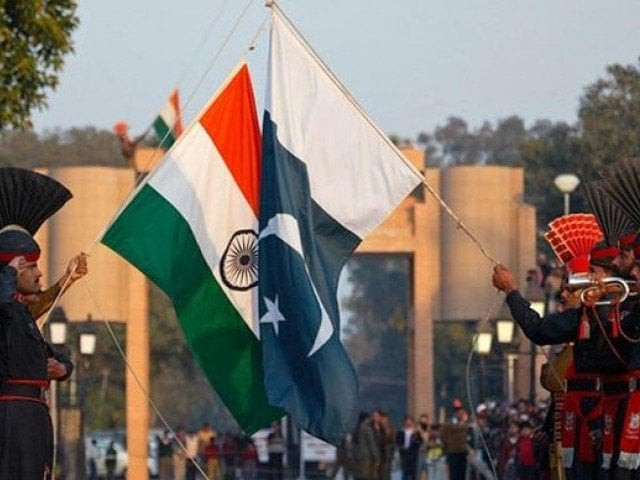Peaceniks urge India, Pakistan to ‘return to dialogue to resolve issues’
Politicians and ex-officials also urge New Delhi and Islamabad to set aside differences, work for durable peace

Even as there looks no immediate headway towards deescalating tensions between South Asian nuclear neighbours, at least 50 politicians, former officials, and peace activists have come together urging Pakistan and India to attend to their differences and work for durable peace in the region.
Indian peace activist Om Prakash Shah is planning to release compilations of 50 articles in the form of a book titled In Pursuit of Peace: Improving Indo-Pak Relations, in the Indian capital New Delhi on Saturday, requesting both countries to at least start talks to find solutions to their political issues.
The authors, who have contributed to the book include former Indian Vice President Hamid Ansari, former foreign minister Yashwant Sinha, former chief minister of Indian Illegally Occupied Jammu and Kashmir (IIOJK) Farooq Abdullah, ex-Pakistani foreign minister Khurshid Mahmud Kasuri, and former information minister Javed Jabbar, among others.
Read more: India, Pakistan relations likely to remain thorny: experts
Speaking to Anadolu Agency ahead of the release of the book, Shah said there was a general recognition on both sides to find a way to co-exist in a peaceful productive manner and to make sure that the differences do not spin out of control, especially given the developmental challenges faced by both countries.
"The main aim of this book is to deepen our mutual understanding of the different points of view in Pakistan and India and to speed up the process of dialogue, which I believe is an important tool for bridging the trust deficit between India and Pakistan," said Shah, who is working on improving Indo-Pakistan relations for the last three decades.
He said that the book has taken the stock of Indo-Pak relations as both countries are approaching the 75th anniversary of their independence in August 2022.
Relations between India and Pakistan plummeted to a new low after Aug. 5, 2019, when India not only revoked the longstanding special status but also bifurcated the state of IIOJK, prompting Islamabad to downgrade its diplomatic ties.
Desirable to turn to dialogue
Pakistan has been maintaining the normalisation of ties with New Delhi is linked to a review of the Aug. 5 decision and ultimate resolution of the Kashmir dispute.
Also read: New security policy seeks ‘peace’ with India
Stating that India Pakistan relationship, "like any complicated multi-faceted relationship, has its ups and downs," Shah said that it is important to maintain a focus on bridging the gaps between the two neighbours that share a long border.
"To bridge this inherited chasm, it is desirable to turn to dialogue, which is an important tool that is available to all of us. It is important that we do not leave the challenging task of establishing a climate of trust and confidence between India and Pakistan to our respective governments only," he said.
Shah urged the civil society in both countries to take a lead in progressing the peace talks and to resolve our mutual differences, in addition to the efforts made by the two governments.
Asked about the central idea in the articles written by a divergent group of people across the borders, Shah said, all authors are committed to finding ways to improve India and Pakistan relations.
Cultural affinity
Mohammad Mukhtar Ansari, a former top official in the Indian government, who has also contributed to the book, said both countries should not be oblivious of emotional attachment between the divided families and cultural affinity among the people of both sides.
"The countries, which support cultural exchange programmes across the regions and promote economic and business trade, do not engage themselves in war-like activities or maintain adversarial relations. Both the countries must give a chance to its people to establish contacts at various levels, which will pave the way for establishing a friendly relationship with all the neighbouring countries," he said.
He added that it is important that the protection of sociocultural identities is duly factored "in the dialogue process to respect and promote traditional bondage between the people living beyond the borders."



















COMMENTS
Comments are moderated and generally will be posted if they are on-topic and not abusive.
For more information, please see our Comments FAQ